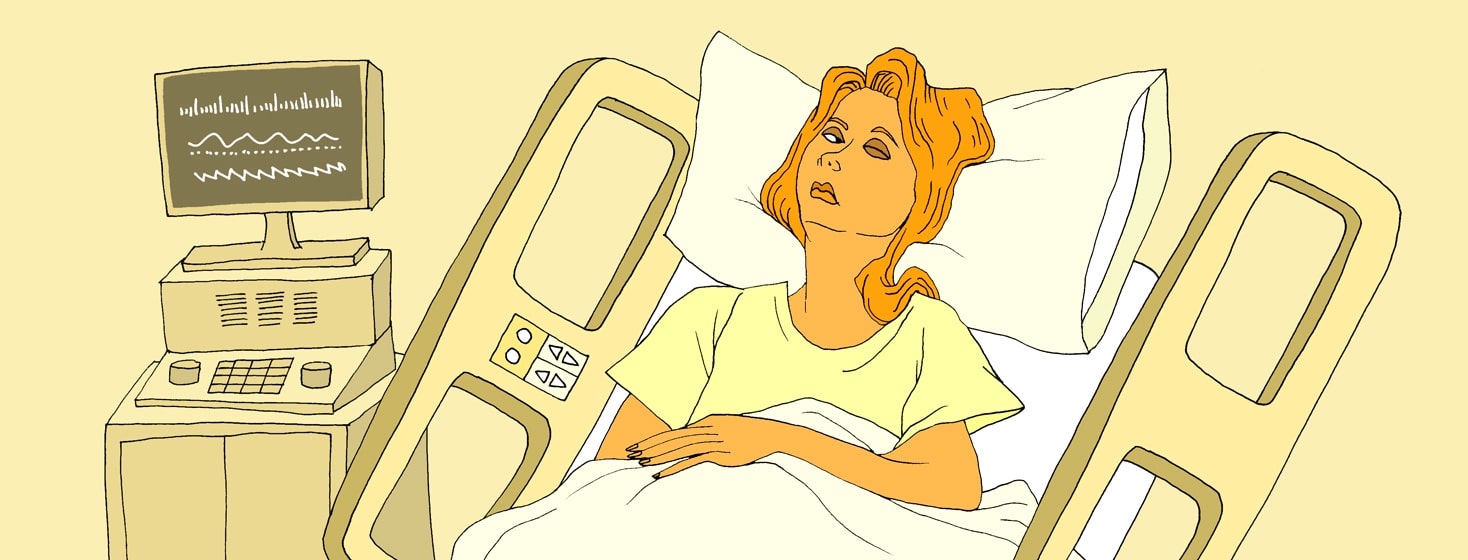Infections or Illness Alongside Insomnia
Everyone gets sick - and being sick can and often does interfere with sleep regularly - even for the average person who does not live with a sleep disorder. Now, some of these disruptions are short term - such as waking up during the night coughing, or with a sore throat, not sleeping well because of a fever or night sweats, and general discomfort, or trouble falling asleep due to congestion or a head cold. Other disruptions, and disruptions that change sleep patterns more significantly can stick around for a while, which can feel incredibly frustrating.
I live with several chronic conditions, and over time I’ve learned how they impact my sleep at night and my need for naps as well. But in the last year and a half, I’ve had two major surgeries, RSV, Asthma flares, Pneumonia, and most recently Bacterial Meningitis.
Each of those things significantly impacted my sleep for weeks or months at a time.
Featured Forum
View all responsesBacterial meningitis and insomnia
Bacterial meningitis has had the biggest impact on my sleep for a variety of reasons:
- I spent 16 days in the hospital over three separate admissions, and during that time I was woken up every 1-3 hours around the clock, so there was literally never a period where I got good rest.
- I spent the following 7 weeks on IV antibiotics at home, with the first infusion starting at 7am and the last infusion of the day ending around midnight. This prevented me from getting enough sleep at night, and also caused me to wake during the night in pain or discomfort.
- The intense migraine caused by meningitis made me feel like all I wanted to do was sleep, but falling asleep when in so much pain was very difficult to do.
In the aftermath of this infection, I’ve had a very difficult time adjusting back to a regular sleep schedule like the one I previously had, and this has been incredibly frustrating. I know what my body needs, and at the same time, my body won’t allow me to obtain it.
Now, my experience with bacterial meningitis isn’t unique in the way it disrupted my sleep patterns. As I said earlier, everyone gets sick some times, and any illness or infection in the body can impact your sleep, which can put insomnia into a sort of fight or flight response, with the body asking “what can we do?”, “what should we do?”, “surely sleep is not necessary right now” or even “all I can do is sleep right now.”
Tips to cope when you need more sleep
I want to share a couple things that helped me to cope with needing a lot more sleep and having it be at inconvenient times/not traditional sleeping hours, and hope that those tips can help you if you find yourself in the same boat.
- If you are able, give in to listening to your body. Sleep when you're tired, and give yourself grace when this happens - day or night.
- During the times you aren't sleeping but "should" be (like the middle of the night) find something you can do that will keep you calm and not rile up your emotions or your thoughts. I try to journal with a pen and paper, or listen to some calming music through my air pods.
- If you don't live alone, be honest with your friends or partner(s) or children about when you aren't available during the daytime, and ask for help with anything that needs to be done while napping. For me specifically, meal planning and preparation (mainly family dinners) really suffered when I feel zapped by the end of the day, and knowing I could take this off my plate when needing to rest really released some of the anxiety I was having about letting people down.
- If you work, consider talking to HR about accommodations. Many companies now offer flex hours and work from home options, which could allow you to maintain your job and also not run your body into the ground. There's also the option of short term disability with many companies, and for an acute illness paired with insomnia, there might be a need to take some time to recover without worrying about the pressures of work. I utilized this last year when I was sick - I took a few weeks of short term disability and then for a few more weeks I worked part time - working in the mornings and resting in the afternoons. I had been working full time for a biotechnology company and had access to short term disability benefits, so I only missed out on a percentage of my salary, I was still bringing in enough income to pay the bills.
I'll leave you with this - a mantra from a close friend of mine: be gentle with your body, it's the only one you've got.

Join the conversation